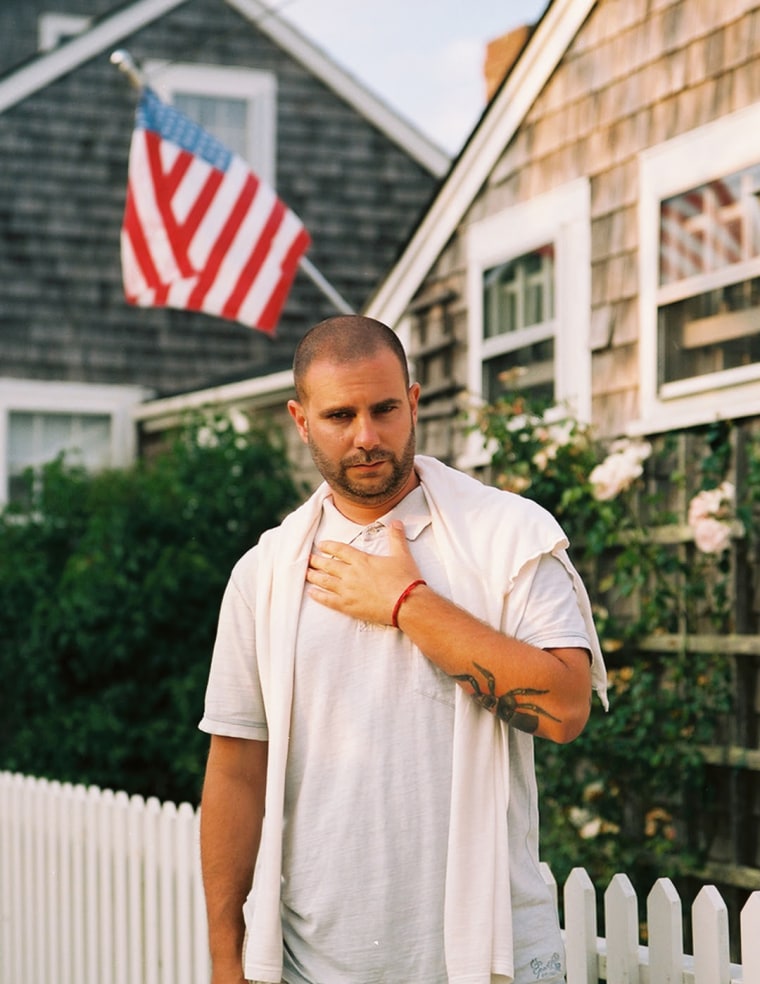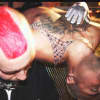
Star Belly, the sixth and final installment of the DJ Screw tribute mixtape series from Rabit a.k.a. Eric C Burton, begins with a clip of an old local news interview with Screw, the man who created the “chopped-and-screwed” sound, a beloved and fiercely guarded Houston institution. The placement is important: Rabit has proven his pedigree as a producer in his own right with Communion, a project of torture chamber club jams for Tri Angle, his work producing “Losss” on Björk's Utopia, and his left-of-center experimental label Halcyon Veil. But an overwhelming respect for Screw and his sound has led Rabit to put his status as an outsider in the scene (he moved to Houston “around ten years ago,” he tells me over the phone from Berlin) at the very front of his work — all while creating exciting music that fiercely advocates for chopped-and-screwed’s continued importance.
Rabit is inspired by the range of styles other than rap that Screw would stretch and alter into his psychedelic sound — “A lot of people didn't know that [Screw] would play [with] other kinds of music,” Rabit says. Star Belly, released in August, eschews the sugar-rush novelty high of a mash-up for inspired combinations: Three 6 Mafia’s “Late Night Tip” instrumental is paired with Courtney Love singing on Hole’s “Violet,” and her scream sticks to the iconic piano line like napalm. The “Playground Riddim” branding on UGK’s “She Luv It” somehow takes an impossibly bossed-up song to another level. M.I.A.’s “Borders,” once an urgent plea for solidarity, settles into the atmosphere on top of J Dilla’s “Bye” beat. The slow, considered pace allows the listener to consider each song’s particular strengths and the threads of connection that they are forming.
Tomorrow, November 16, will be the 19th anniversary of Screw’s passing. The FADER spoke with Rabit about discovering chopped-and-screwed, DJ Screw’s influence, and how to stay progressive while paying homage.
THE FADER: Do you remember when you first came across DJ Screw's music?
RABIT: One of my first experiences [was] at gas station registers. They would have Screwed & Chopped mix CDs — they weren't DJ Screws' mixes, they were freestyles or something like Mariah Carey Chopped & Screwed. This was before people got music off the internet; I had no context because it wasn't like I was on a forum or something. It was like, “these are CDs you buy to play in your car.” Obviously people listen to them at home, but it was also very based around car culture, which is a thing in Texas.
Do you remember the first DJ Screw project or song that you listened to that really stood out?
My favorite one was called "Wineberry Over Gold." And maybe "3AM." One of those two.
What was the next step in your journey with Screw’s music?
I started doing the mixtapes two years ago when I got back from a European tour. I was listening to a lot of witch house, so I just made the connection like, "Oh wow, I could actually do a whole mixtape like blending this stuff with music from Texas." I made all the tracks, and then I [realized] that this was obviously electronic-influenced, but at the same it's DJ Screw-influenced. So at that point, I made the decision that there's not really a right way that I can do this without stating that that's what this mixtape comes from.
I didn't really set out to do some long project, but I was noticing that the more I worked with the sound, there were a lot of ideas or sub-styles, and so I continued doing them as long as I enjoyed [them]. The last [tape] that I did, a couple times I would be getting a vibe like, "What if DJ Screw had continued what he was doing? What direction would he go?” There's been a lot of things along the way that have gone there, like Salem. I think at the end of the day, the tapes were just an experiment and to have fun.
The way that DJ Screw's name and image is front and center in this series stood out for me, as it’s at the other end of the spectrum from other artists who just took the style and ran with it.
Because I wasn't born in Texas, it was still a style I was playing with. Nowadays, when you're doing ideas that aren't yours — I mean, look at the Nina Kravitz thing — you have to have sensitivity and also recognize when you're a guest and where that line is and what you feel comfortable doing as an artist. You can't really name an American genre of club or dance music that wasn't started by black people, but Diplo is the person that gets a Grammy for doing Baltimore club music or something. So I say on the tapes pretty openly that this is not a DJ-type thing. Because in Texas, if it's not DJ, it's not proving chops.
For someone who's never been to Houston, what's important to understand about Houston as a city and as a rap culture?
I think Houston always has its own sound, even though it might sound like Atlanta. The stuff coming out of Houston right now, it's not [like Atlanta rap] if you know what to look for. The rappers in Houston that are working right now, they rarely do chopped-and-screwed versions of their albums, whereas I would say the Mike Jones-Slim Thug era, they still did. The new style... it doesn't really go there. I would say [chopped-and-screwed] is considered old school. Just like [how] New Yorkers don't listen to Illmatic-style music anymore, it’s just shifted.


